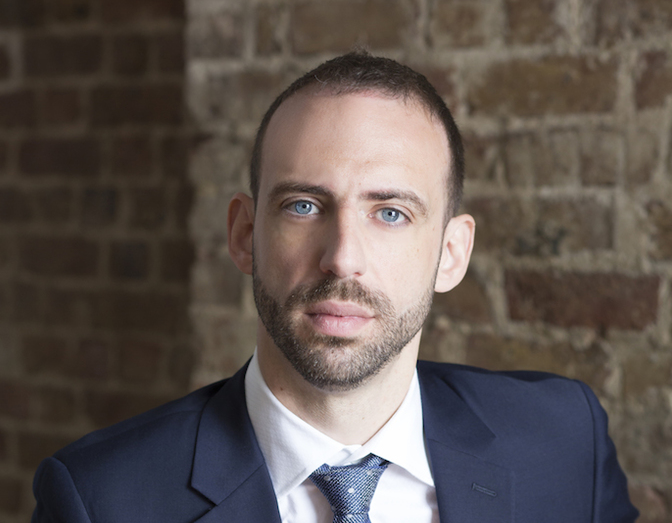The UK government has announced further details about its Future Fund — and will open the scheme to applications this Wednesday.
The £500m fund, of which the Treasury will stump up £250m, will issue convertible loans to startups to help them weather the Covid-19 storm. Government loans could range from £125,000 to £5m, and will be managed by the British Business Bank (BBB).
Investors and founders alike have pointed out that the fund could disappear fairly quickly, and many companies could miss out. However, yesterday, chancellor Rishi Sunak told Parliament that "should applications exceed the initial £250m provided, [he] will be more than happy to extend the scheme".
"I think this will be a vital part of fuelling our recovery, because... these companies provide the growth of tomorrow and they deserve our support," Sunak added.
Lead investors will apply on behalf of startups (and other investors) via an online portal. Applications will be processed on a first-come, first-served basis.
To help startups and investors make a speedy and smooth application to the scheme, we've gathered tips and advice from lawyers, VCs and bankers.
Future Fund 101

How can startups apply?
They can't.
Sonya Iovieno, managing director of Silicon Valley Bank, says: "Investors will need to drive the application process and lead any submission. The company itself does not initiate the process."
Who can be an investor in the round?
"Any private investor can provide matched funding as part of the Future Fund round. They can be an individual (but cannot claim EIS), a VC or a corporate investor," says Michael Buckworth, managing director of law firm Buckworths.
"Matched funding can be provided by non-UK investors as well as UK investors," he adds.
Matched funding can be provided by non-UK investors as well as UK investors.
Who can be a lead investor?
"The company needs to identify a lead investor to submit the application for them. That investor will need to be provided with details of all the investors as well as information on the startup," says Buckworth.
Any person can be a lead investor so long as they are investing at least £12,500.
"Any person can be a lead investor so long as they are investing at least £12,500. They need not be the largest investor in the round."
What happens once an investor has made an application?
"Once a lead investor has submitted an application, they will receive an email with instructions on how to (i) proceed with opening an online account; and (ii) progress the application. All details the company will need are here," says the British Business Bank (BBB).
Can investors apply for multiple startups at once?
"No. The lead investor will have to make a separate application for each company for which it is leading a proposed investment," says the BBB. If an investor makes multiple applications on a day when the BBB receives a high volume of applications, the bank may only process one of those applications on that day.
In practice, this means that lead investors applying on behalf of multiple startups will have to choose which companies they apply for first — and perhaps stagger applications over several days.
"Lead investors should probably try to avoid submitting multiple applications on the same day, particularly in the early days of the application process," says Ylan Steiner, partner at law firm Orrick. "Instead, they might seek to ensure an alternate lead investor is selected, where possible."
Lead investors should probably try to avoid submitting multiple applications on the same day, particularly in the early days of the application process.
"Applications from potential investors will be assessed and allocated funding on a first-come-first served basis, subject to meeting the eligibility criteria. Controls are in place to reduce privileged access by more advanced potential investors submitting applications in respect of a large number of companies on the same day," says the BBB.
Is there a limit on the number of companies an investor can put forward for the Future Fund?
"There is no limit to the number of companies in which you can invest, whether as lead investor or otherwise," says the BBB.
How quickly should investors aim to apply on behalf of companies?
"There is a limited £250m pot of government funding available. Although the scheme is open until September, it may be used up well before then. Inevitably there will be a number of later stage high growth startups raising £10m under the scheme and so utilising the maximum £5m of government money. 50 investment rounds of that size would use up the entire fund," says Buckworth.
"Startups should apply as soon as possible to maximise their chances of securing funding."

How quickly can founders expect to receive the capital?
Applications are expected to take a minimum of 21 days from initial application to funding being awarded, according to the BBB.
What conversations do founders need to have with their investors?
The final terms of the Future Fund are largely consistent with the headline terms announced in April, says Steiner. This means that investors and startups planning to apply should already have gathered most of the necessary paperwork and thrashed out many of the details.
"There's very little personalisation of the scheme — by necessity it is pretty rigid in its format — so there are only four or five variables that can be added in," adds Steiner.
"Founders should be clear that the investment is via a convertible loan rather than straight equity, and (for angel investors) that it will not qualify for EIS. Angel investors seeking to participate in the round by way of convertible may lose some or all EIS on future equity investments they make," says Buckworth.
"Existing shareholders will need to waive pre-emption rights to which they are entitled on conversion of the loans. This will be required in advance of the company entering into the convertible loan. Investors may also need to sign consents and other documentation to authorise the company to proceed with the round," Buckworth adds.
Can companies without a UK parent company apply?
No. "The top co must be a UK-registered company," says Steiner.
The top co must be a UK-registered company.
Several startups based in the UK, but without a UK parent company, including many that had participated in US accelerator programmes like Y Combinator, had been petitioning the government to make them eligible for the scheme.
What documents do investors need to have ready?
Full details on what information investors will need to submit as part of the application process are listed here.
What documents do founders need to have ready?
Full details on what information startups will need to provide as part of the application process are listed here.
"Have relevant KYC (know your customer) information ready to go; standards may have changed since companies last did this so ensure relevant documentation is in place — this will be more timely and less well understood if the companies investors are non-UK," adds Iovieno.
Do startups need solicitors?
Yes. The scheme will be paid via solicitors' client accounts.
"The distribution of funds for successful applications will be handled through nominated company solicitors," says the BBB.
The distribution of funds for successful applications will be handled through nominated company solicitors.
"It is your responsibility to appoint solicitors with the necessary rights to practice and handle client monies. You can consult the public registers of the relevant regulatory bodies in the UK to check your solicitor has the right to practice. You may also wish to instruct a company solicitor to advise on the scheme, your eligibility under the scheme and the associated documents."

What other fees do founders need to factor into the application process (e.g. legal fees)? And how much might these come to?
"A convertible note is always a cheaper instrument to implement than an equity financing round — a lot of terms don't need to be set and negotiated in the same way. In this case because the document is a standard form, the legal fees should be brought down further," says Steiner.
A convertible note is always a cheaper instrument to implement than an equity financing round.
However, he adds, the stipulation that the funding will be run through the solicitor's client accounts will increase their workload. Startups with a complicated funding history or a large number of shareholders to coordinate should also expect to pay more.
"Legal fees should be relatively small as the convertible loan agreement is largely non-negotiable," says Buckworth. "However, startups will need corporate authorisations (such as board and shareholder resolutions, consents and pre-emption waivers) to be put in place and prudent founders will want advice on the potential dilution caused by exercise of the convertible loan, the impact and future availability of EIS and VCT reliefs for investors and the State Aid implications of participating in the Future Fund.
"The funds raised from the Future Fund cannot be used to pay fees to any corporate finance entity, investment bank or other similar provider and so will have to be covered from other sources of funding. If investors are using VCs for matched funding, these fees could range from 2% to 15% of the sums raised."
Will the government seek to fund a diverse range of startups?
"There is a requirement to sign up to the UK Government Investing in Women Code and commit to data sharing. Companies and their investors will need to be aligned to the Investing in Women Code and comfortable sharing data collected as part of the application process," says Iovieno.
Is the Future Fund the right scheme for startups?
"The government is investing on commercial terms — this scheme is not a handout," says Buckworth. "A 20% discount to the qualifying round price on conversion is at the upper end of the commercial scale and an interest rate of 8% per annum is very high, particularly taking into account the rate at which the government is able to borrow money. The 100% redemption premium (i.e. the startup has to repay 2x the principal amount) plus interest on repayment is exceptionally onerous when compared to the CBILS and Bounce Back Loan Schemes. Leaving the government and matching investors in control of the decision on whether to convert or repay at the end of the term also removes significant control from founders.
The government is investing on commercial terms – this scheme is not a handout.
"Startups should think carefully before applying for the Future Fund. This may be a quick way to double the size of an investment round, but the government will take its pound of flesh one way of the other."
For founders who haven't taken a convertible note before, what do they need to be aware of?
"Convertible loans are debt instruments and so do not qualify for the Enterprise Investment Scheme. This means that the Future Fund may not be attractive to individual 'angel' investors who would usually want to claim 30% income tax relief on their investment and benefit from 100% capital gains tax relief on disposal of their shares.
"Founders should check the conversion terms of existing convertible loans and advance subscriptions to ensure that the Future Fund round will not trigger a conversion. Founders should be extremely careful seeking to amend the terms of any outstanding advance subscriptions as this can void EIS reliefs for investors.
"The Future Fund may request repayment of the loan if it has not converted by the expiry of the three year term. In such circumstances a sum equal to 2x the principal amount of the loan plus interest will be repayable. A majority (by amount lent) of the matching investors may also request that their loans are repaid. This is potentially risky for a startup as it could end up having to repay huge amounts of principal as well as interest at the end of the term.
"Absent an event of default, the loan will automatically convert into the class of shares with the most advantageous rights at the next “qualifying” equity investment round which raises more than the sum of the loans in the Future Fund round. The government (and matched investors) will benefit from a discount to the price paid by the investors in the qualifying round (which in the case of the government will be at least 20%). If the company raises a round of a lesser amount, a majority (by amount lent) of the matching investors (and in some circumstances, the government) may decide to convert the loans into shares. On an exit, and at the end of the term, a conversion occurs at a discount to the last investment round price. Founders should try to model the impact of conversion on their cap table, particularly if conversion occurs on a down-round.
"The government always gets the best terms offered to any investors both during the Future Fund round and after it. Their convertible loan agreement contains widely drafted covenants preventing startups from offering side deals to investors to incentivise them to invest, breach of which trigger an immediate repayment of the loan and interest."
This piece was updated on Tuesday 19 May to include Rishi Sunak's comments in Parliament about potentially extending the Future Fund.


